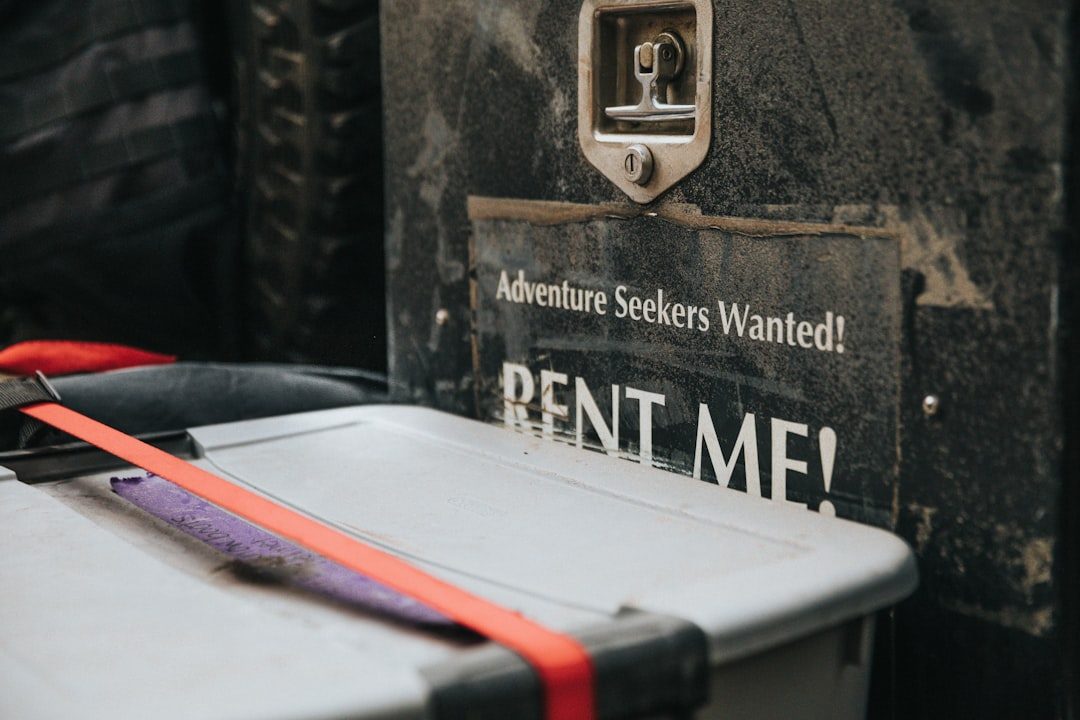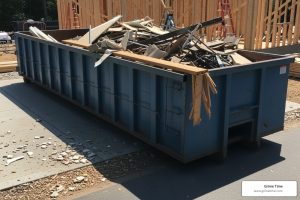Understanding Rent a Bin Cost: What You Need to Know
Rent a bin cost varies widely across the U.S., but here’s what you can expect to pay:
- National Average: $384-$596 per week
- Small Bins (2-10 yards): $250-$470
- Medium Bins (20 yards): $315-$773
- Large Bins (30-40 yards): $432-$1,115
- Weight Limits: 1-6 tons included (overage fees $40-$200 per ton)
- Rental Period: Typically 7-14 days
Whether you’re a contractor managing multiple job sites or handling a one-time cleanup, understanding bin rental costs helps you budget accurately and avoid surprise fees. The waste management industry has seen significant price increases recently – disposal costs have doubled since 2013, and labor costs have risen 50%.
Most rental companies offer flat-rate pricing that bundles delivery, pickup, disposal fees, and a generous weight allowance into one upfront cost. This transparent approach beats variable pricing models where you don’t know the final bill until after landfill processing.
The key to getting the best value isn’t just finding the cheapest rate – it’s understanding what’s included, choosing the right size, and working with reliable local providers who won’t hit you with hidden fees or missed deliveries that throw your project timeline off track.

Simple guide to rent a bin cost terms:
– 5 yard dumpster
– Construction debris dumpsters
– Austin dumpster rental company
Why This Guide Matters
With the national average rent a bin cost ranging from $384 to $596, understanding pricing helps you avoid overpaying by hundreds of dollars. Local providers often beat national chains by 20-50%, making it crucial to compare options in your area. Whether you’re tackling a garage cleanout or managing construction debris, this guide ensures you get hassle-free cleanup without breaking your budget.
How Much Does It Really Cost to Rent a Bin?
Let’s cut through the confusion and get to the real numbers. Rent a bin cost varies significantly depending on where you live and what size you need, but understanding the basics helps you budget properly.
The national average hovers between $384 and $596 for most rental periods, but that’s just the starting point. In reality, you might pay as little as $250 for a small bin in a rural area or over $1,100 for a large container in expensive urban markets.
Here’s what drives those price differences: location matters more than you’d think. A 20-yard bin that costs $315 in smaller Texas towns might run $773 in major metropolitan areas. Labor costs, disposal fees, and local regulations all play a role.
Most companies price rentals by the week, with 7 to 14 days included in your base rate. Need it longer? Daily extensions typically add $5 to $20 per day.
Weight limits are where things get interesting. Every quote should include a specific weight allowance, usually ranging from 1 to 4 tons depending on bin size. When you go over the limit, expect overage fees between $40 and $200 per ton.
Understanding permits can save you headaches down the road. Check out this helpful resource for latest research on dumpster permits before you book.
| Bin Size | Price Range | Best For | Weight Limit |
|---|---|---|---|
| 10-yard | $250-$690 | Small renovations | 2-3 tons |
| 20-yard | $315-$773 | Home cleanouts | 3-4 tons |
| 30-yard | $377-$975 | Large projects | 4-5 tons |
| 40-yard | $432-$1,115 | Construction jobs | 5-6 tons |
Size-Based Price Ranges
Small bins pack a punch for tight budgets and tight spaces. Mini containers from 2 to 8 cubic yards cost between $75 and $300 per week. These front-loading style bins fit in driveways where roll-offs won’t, but they come with strict weight limits – usually just 400 to 1,000 pounds total.
Medium-sized bins hit the sweet spot for most homeowners. The popular 10-yard low-boy style ranges from $245 to $330 per week and works great for heavy materials. 20-yard bins – the most popular size – run $270 to $700 depending on your location. These sizes include 2 to 4 tons of weight allowance.
Large roll-off bins handle the big jobs. 30-yard containers can cost up to $975 per week, while 40-yard bins range from $800 to $1,115. These include 4 to 6 tons of weight capacity and work perfectly for major construction projects.
Regional Price Snapshots
Austin, Texas offers clear package options. The Budget package runs $375 and includes a 10-yard bin for 3 days with a 1,000-pound limit. Step up to the Express package at $475 and you get 10 days with a 2,000-pound allowance – much better value for longer projects.
Urban areas consistently cost 20 to 30% more than rural locations due to higher disposal costs, labor rates, and stronger demand.
Know Your Size & Weight Limits Before You Book
Choosing the wrong bin size is like buying shoes that don’t fit – uncomfortable and expensive. Getting it right from the start saves you from overage fees and the headache of needing a second dumpster mid-project.
Capacity math is simpler than you think. Picture this: 1 cubic yard holds about the same as 5-6 contractor bags of debris. A 10-yard bin can handle roughly 3 pickup truck loads, while a 20-yard takes about 6 loads.
But here’s where many people get caught off guard – debris weight varies dramatically. Your grandmother’s old furniture might fill a 20-yard bin but only weigh 2 tons. That same bin filled with concrete? You’re looking at 20+ tons and some serious overage fees.
General household debris typically weighs 300-500 pounds per cubic yard. Construction debris bumps up to 500-800 pounds per yard. But concrete and dirt? That’s where things get heavy fast – 2,000 to 4,000 pounds per cubic yard.
For detailed guidance on sizing, visit: More info about choosing sizes
Quick Size Calculator
Furniture clean-out projects are pretty straightforward. A 10-yard bin handles 1-2 rooms of furniture comfortably. Cleaning out 3-4 rooms calls for a 20-yard bin. Tackling a whole house worth of contents needs a 30-yard bin.
Roofing tear-off projects require careful planning because shingles are deceptively heavy. A 10-yard bin works for up to 1,500 square feet of single-layer shingles. Got 2,000-2,500 square feet to strip? Step up to a 20-yard bin.
Concrete demo is where weight limits really matter. A 10-yard low-boy can handle 80-100 square feet of 4-inch concrete. Double that space? You’ll need a 20-yard bin.

Typical Weight Caps per Bin
Mini bins (2-6 yards) come with lighter weight limits of 400-1,500 pounds. They’re perfect for light debris and household items.
Medium bins (10-20 yards) typically handle 2-4 tons of material. A 10-yard low-boy often comes with unlimited weight for clean concrete and dirt. Standard bins in this range usually max out at 4,000-8,000 pounds.
Large bins (30-40 yards) can handle 4-6 tons of debris. A 30-yard bin typically allows 8,000-10,000 pounds, while a 40-yard bin bumps that up to 10,000-12,000 pounds.
The rent a bin cost jumps significantly when you exceed these weight limits, so it’s worth planning ahead.
Factors That Drive Rent a Bin Cost Up or Down
Several key factors can make your rent a bin cost swing from budget-friendly to surprisingly expensive. Understanding these variables helps you plan better and avoid those “gotcha” moments that can derail your project budget.
Location makes a bigger difference than you might think. If you’re within the standard service area, you’re golden. But venture into rural territory, and you could face remote delivery charges of $0.50-$0.65 per mile beyond the normal zone. That peaceful country property might cost an extra $50-$300 just in mileage fees.
Your rental timeline affects pricing too. Most quotes include a generous 7-14 day period, which works perfectly for weekend warriors and small projects. Need more time? Daily extensions typically run $5-$20 per day. Here’s a pro tip: if you know you’ll need 3-4 weeks, ask for a longer initial rental period upfront – the daily rate often drops compared to tacking on extensions later.
The type of debris you’re tossing matters more than the volume sometimes. General construction debris gets standard rates, but heavy materials like concrete or dirt often require special low-boy bins with different pricing. Mixed waste costs more because landfills charge extra for sorting. And hazardous materials? They’re either completely prohibited or require special handling fees that can double your bill.
Landfill rates vary wildly across the country. The national average sits around $20-$50 per ton, but some high-cost areas like certain California markets can hit $100+ per ton. The good news? Clean concrete and dirt often have zero disposal fees since they’re recycled into useful materials.
Don’t forget about permits. If your driveway can’t accommodate the bin and you need street placement, most cities require permits costing $10-$80. Processing times range from same-day approval to two weeks, so plan accordingly.
Hidden Fees to Watch
Nobody likes surprise charges, but they’re unfortunately common in the bin rental world. Overweight charges top the list at $40-$200 per ton over your limit. One cubic yard of concrete can easily add $100-$200 to your final bill – that’s why we always recommend understanding material weights before loading.
Extra day fees seem small at $5-$20 per day, but they add up fast if your project runs long. Weather delays, permit issues, or simply underestimating your timeline can turn a $400 rental into a $600+ expense.
Trip fees of $40-$100 kick in when the driver can’t complete pickup due to blocked access, missed appointments, or prohibited items in the bin. These are usually avoidable with good communication and planning.
Prohibited items fees start around $35 per item for things like mattresses, tires, or appliances. Some companies charge even more for hazardous materials that require special disposal methods.
How Flat-Rate Beats Variable Pricing for rent a bin cost
At Grime Time, we believe in transparent flat-rate pricing because nobody should need a calculator to figure out their final bill. Our quotes include everything upfront: delivery, pickup, your rental period, generous weight allowance, and all disposal fees.
Variable pricing sounds cheaper initially because companies separate rental fees from disposal costs. But you won’t know your real rent a bin cost until after the landfill processes your debris and weighs it. That “budget-friendly” quote can balloon into sticker shock.
With flat-rate pricing, you know exactly what you’ll pay from day one. No surprises, no hidden fees, no anxiety about whether that extra bag of debris will cost you another $50.
For more details about our straightforward pricing approach: More info about roll-off pricing
Smart Ways to Save on Your Bin Rental
Nobody likes paying more than they have to, especially for waste disposal. The good news? There are several proven strategies to reduce your rent a bin cost without sacrificing service quality.
Timing is everything when it comes to savings. Winter months from December through February typically offer the best deals, with many companies reducing prices by 10-20% during slower periods. Spring and summer bring peak pricing as contractors ramp up and homeowners tackle spring cleaning projects.
Contractors get the royal treatment – and the savings to match. Regular commercial customers often save 15-25% through volume pricing agreements. At Grime Time, our contractor programs include priority scheduling, dedicated account management, and significant discounts for repeat customers.
Here’s a creative approach that works surprisingly well: coordinate with your neighbors. Split the cost of a larger bin for neighborhood cleanouts or renovation projects happening around the same time.
The donation-first strategy might be the smartest money-saver of all. Before you rent, walk through your project and identify items that could go to charity instead of the landfill. This approach doesn’t just save money – it often lets you downsize to a smaller, cheaper bin.

Coupon & Loyalty Programs
Don’t be shy about asking for discounts – many companies offer them but don’t always advertise them prominently. Military veterans and seniors frequently qualify for 5-10% discounts.
Contractor accounts open up the best long-term savings. Regular users benefit from priority scheduling, volume discounts ranging from 10-25% off standard rates, and dedicated customer service lines.
First-time customers shouldn’t overlook promotional pricing. Many companies offer special introductory rates or waived delivery fees to win new business.
Right-Sizing & Load Planning
Smart loading techniques can help you avoid costly upgrades to larger bins. Break down and nest items whenever possible – disassemble furniture, nest smaller boxes inside larger ones, and remove unnecessary packaging.
Separate heavy materials like concrete, dirt, and roofing shingles from general debris. These dense materials work better in smaller, specialized bins rather than large general-purpose containers.
Load distribution matters more than most people realize. Place heavy items on the bottom and lighter, bulky materials on top. This prevents settling during transport that could unexpectedly push you over weight limits.
Step-By-Step: Booking, Delivery & Pickup Made Easy
Getting your bin rental set up doesn’t have to be complicated. Here’s how the process works from start to finish:
Getting your quote is the first step, and it’s where good communication saves you money later. Tell us about your project – what kind of debris you’re dealing with, how much you think you have, and when you need it delivered. The more details you share upfront, the smoother everything goes.
Permit requirements can catch people off guard, especially if you need the bin placed on the street. Most driveways don’t require permits, but public property usually does.
Site preparation makes a huge difference on delivery day. Our trucks need about 40-60 feet of clear, straight access to drop your bin safely. Walk through your property and move cars, check for low branches, and make sure the ground is firm enough to support the weight.
Once your bin arrives, safe loading keeps you within weight limits and avoids extra fees. Keep debris level with the container walls, spread heavy items evenly across the bottom, and never try to pack concrete and household junk in the same bin.
Scheduling pickup is as simple as giving us a call when you’re ready. We offer same-day pickup when our schedule allows, or you can book a specific date in advance.
For more detailed preparation guidance, check out: More info about questions to ask
Permit Checklist for Street Placement
Most homeowners can skip this section if they’re putting the bin on their own property. But if you need street placement, here’s what you’re looking at:
City hall processes vary quite a bit around Central Texas. Some cities handle permits the same day, others need up to a week. Fees typically run $10-$80.
Processing times matter more than you might think. If your contractor is starting work Monday and you apply for a permit Friday afternoon, you might be waiting until the following week.
Common restrictions include limits on how long you can keep a bin on the street (usually 7-14 days) and requirements to keep traffic lanes clear.
Day-Of Delivery Tips
Access preparation prevents delays and extra charges. Our delivery trucks are big – think garbage truck size – and they need room to maneuver. Clear that 40-60 foot access path the night before.
Surface considerations are especially important in Central Texas where we get heavy rains that can soften ground quickly. Concrete driveways and asphalt handle the weight no problem. Grass, gravel, or dirt areas work too, but they need to be firm and level.
Driveway protection gives you peace of mind if you’re concerned about marks or minor damage. Plywood sheets under the container feet spread the weight out and create a barrier.

The whole process typically takes our drivers about 10-15 minutes for delivery and 5-10 minutes for pickup.
Frequently Asked Questions about Rent a Bin Cost
How long can I keep a rented bin before fees kick in?
Most rent a bin cost quotes include 7-14 days in your base price, which gives you plenty of time for most projects. After that sweet spot, you’ll typically see daily fees ranging from $5-$20 per day.
Here’s a money-saving tip from our experience: it’s usually smarter to book your initial rental period slightly longer than you think you’ll need. Those daily overage fees can really add up, and it’s much more cost-effective to plan ahead than to pay extra later.
If you’re tackling a big cleanout or renovation, don’t feel rushed. We’d rather you take the time you need to do the job safely than feel pressured by the clock ticking on rental fees.
What happens if I exceed the weight limit?
Nobody wants surprise fees, so let’s talk about weight limits honestly. When you go over the included weight allowance, you’re looking at overage fees ranging from $40-$200 per ton. That might sound scary, but we always provide weight estimates upfront to help you avoid this situation.
Here’s the thing about weight limits – they’re not just about money, they’re about safety and legal requirements. Our drivers are legally prohibited from hauling containers that exceed 10 tons total weight. If your bin is severely overweight, we’ll need to partially remove some debris and that means additional fees.
The good news? Most weight overages happen with heavy materials like concrete, dirt, or roofing shingles. We can help you choose the right bin size and type for heavy debris projects, like our low-boy containers that are specifically designed for these materials.
Are hazardous materials ever allowed in rental bins?
The short answer is no – hazardous materials are prohibited by law in standard dumpsters, and there’s no wiggle room on this one. We’re talking about materials that could harm our drivers, damage equipment, or contaminate landfills.
The most common prohibited items include paints and solvents, automotive fluids like oil and antifreeze, batteries and electronics, asbestos-containing materials, and any type of medical waste. We also can’t accept propane tanks, pesticides, or anything flammable.
But don’t worry – you’re not stuck with these materials! Many communities offer special collection events for hazardous waste, and some items like electronics can often be recycled at local retailers. We’re always happy to provide guidance on proper disposal alternatives that keep you legal and environmentally responsible.
If you accidentally put prohibited items in your bin, we’ll need to remove them before hauling, which typically involves a $35+ fee per item. When in doubt, just give us a call – we’d rather answer questions upfront than deal with complications later.
Conclusion
When it comes to rent a bin cost, the numbers don’t have to surprise you. We believe in straight-forward pricing that tells you exactly what you’ll pay before we deliver – no mystery fees showing up after your project is done.
Here in Austin and Central Texas, from Bastrop all the way to Georgetown, we’ve learned that folks appreciate knowing what they’re getting into. That’s why our flat-rate pricing bundles everything together: delivery, pickup, disposal fees, and plenty of weight allowance. One price, one bill, no headaches.
The Grime Time difference isn’t just about transparent pricing, though that’s a big part of it. We’ve built our reputation on showing up when we say we will, treating your property with respect, and making the whole process as smooth as possible. Our contractor programs offer priority scheduling and volume discounts because we know commercial customers need reliable partners they can count on.
With disposal costs climbing across the industry, honest pricing becomes even more valuable. We’re not interested in lowball quotes that turn into expensive surprises. We’d rather give you the real number upfront so you can budget properly and focus on your project instead of worrying about your bill.
Getting the best value means more than just finding the cheapest rate. It means working with people who understand that your time matters, your property matters, and your budget matters. Whether you’re cleaning out a garage or managing a major renovation, you deserve service that keeps your project moving forward without the stress.
Ready to see what transparent pricing looks like? We provide free, no-obligation quotes with clear explanations of everything that’s included. We’ll help you pick the right size, sort out any permit requirements, and make sure your timeline stays on track.
For complete pricing information and to request your free quote: More info about roll-off dumpster rental
Contact us today for the kind of straightforward service that lets you focus on your project instead of worrying about hidden fees and surprise charges. Your time is valuable – let’s not waste it on anything but getting the job done right.





